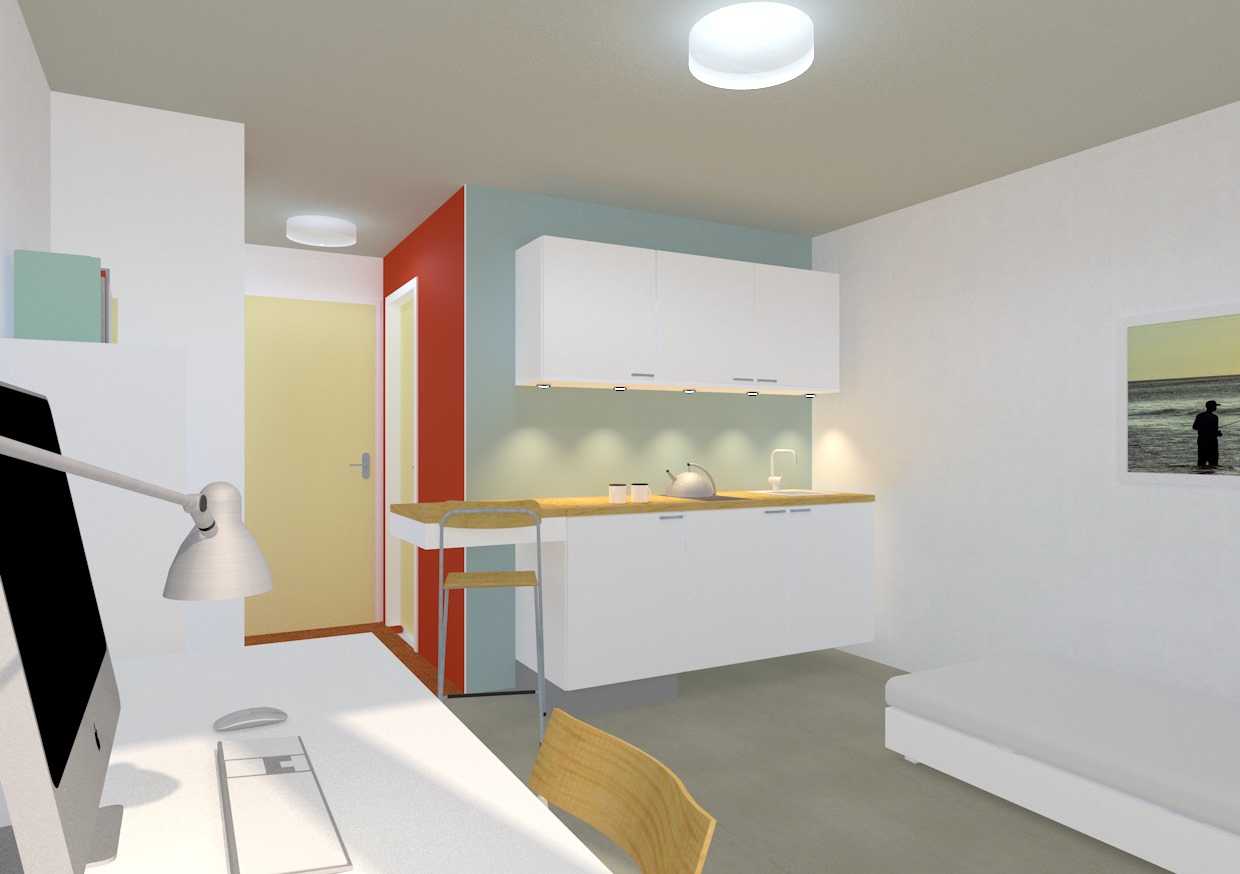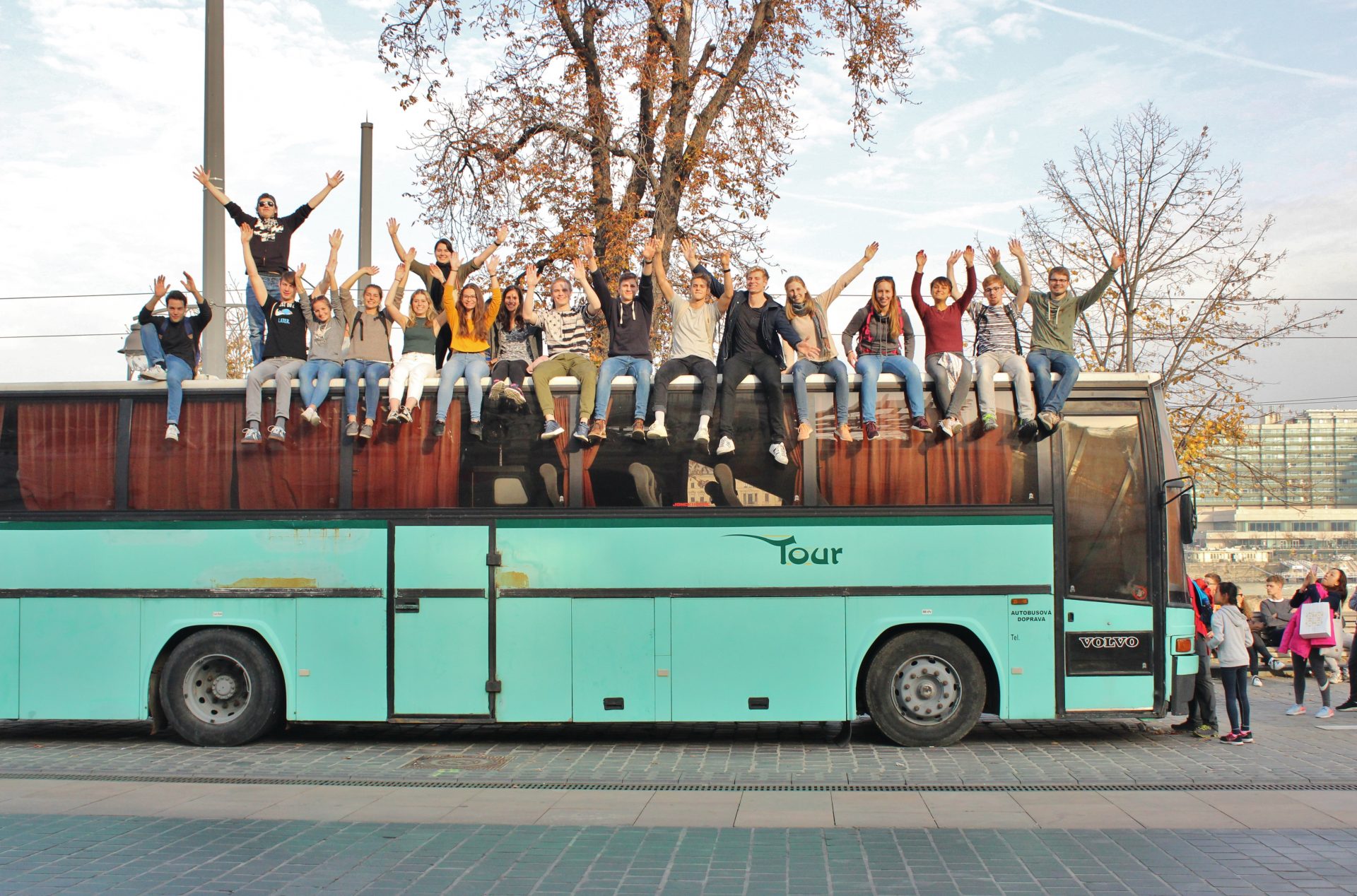Dormitory
Community, engagement, responsibility, and affordable rents – these are the pillars that the “Studentenwohnheim Geschwister Scholl e.V.” (short: Schollheim) has stood upon since its establishment in 1960 in the heart of Munich. This unique combination is owed to various qualities that aptly describe the dormitory:
Space for community
The 214 single rooms and 55 apartments within the Schollheim form residential clusters of various sizes known as ‘hallways.’ Each hallway comprises rooms that border a common corridor and the adjacent apartments. Additionally, each hallway offers a communal kitchen or a kitchen adjacent to a communal space, as well as sanitary facilities with showers and toilets. The residents of a hallway collectively form a hallway community, involving responsibilities such as waste disposal and corridor cleaning, as well as opportunities for participation in the living environment. These opportunities arise, for instance, through numerous interaction points with fellow residents in the communal kitchen, an ideal space for conversations and joint activities such as cooking sessions, game nights, and hallway parties.
Outside the residential clusters, there are numerous opportunities to meet other residents (also known as ‘Schollis’), for instance, in the courtyard or at the bar. The dormitory also includes various communal spaces for individual or group activities, such as the sports room, media room, music room, table tennis room, billiards room, workshop, or creative space. For larger communal events like celebrations, the general assembly, or group workouts, the hall in House 1 is available.
The Residents
Schollheim provides a home to many diverse students, currently accommodating a total of 269 students from the state universities in Munich. The residents are equally divided between male and female, and one-third of all residents are international students coming from various parts of the world. However, predominantly, European students find their way to Schollheim and its community. Students from various fields of study are represented, with a slightly stronger presence from technical disciplines due to the close proximity to the Technical University of Munich (TUM).
The decision on who gets to move in is made by the students themselves through an admission committee, which is part of the student dormitory’s self-administration. Particularly relevant for the decision-making process are the applicant’s personality, engagement, financial circumstances, and their social eligibility for support, which should be expressed in the motivation letter. This selection process aims to ensure that new residents integrate well into the dormitory.
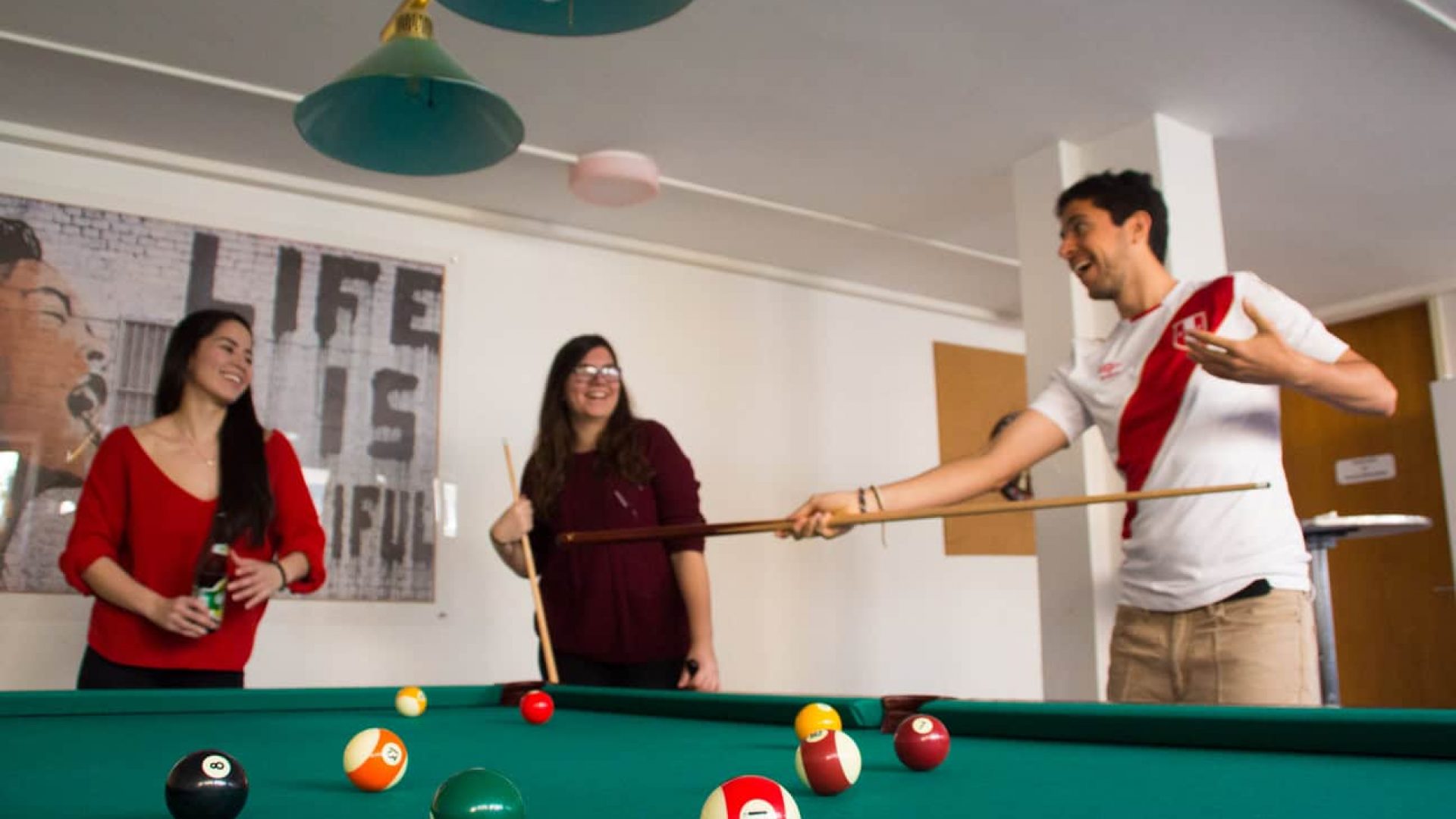
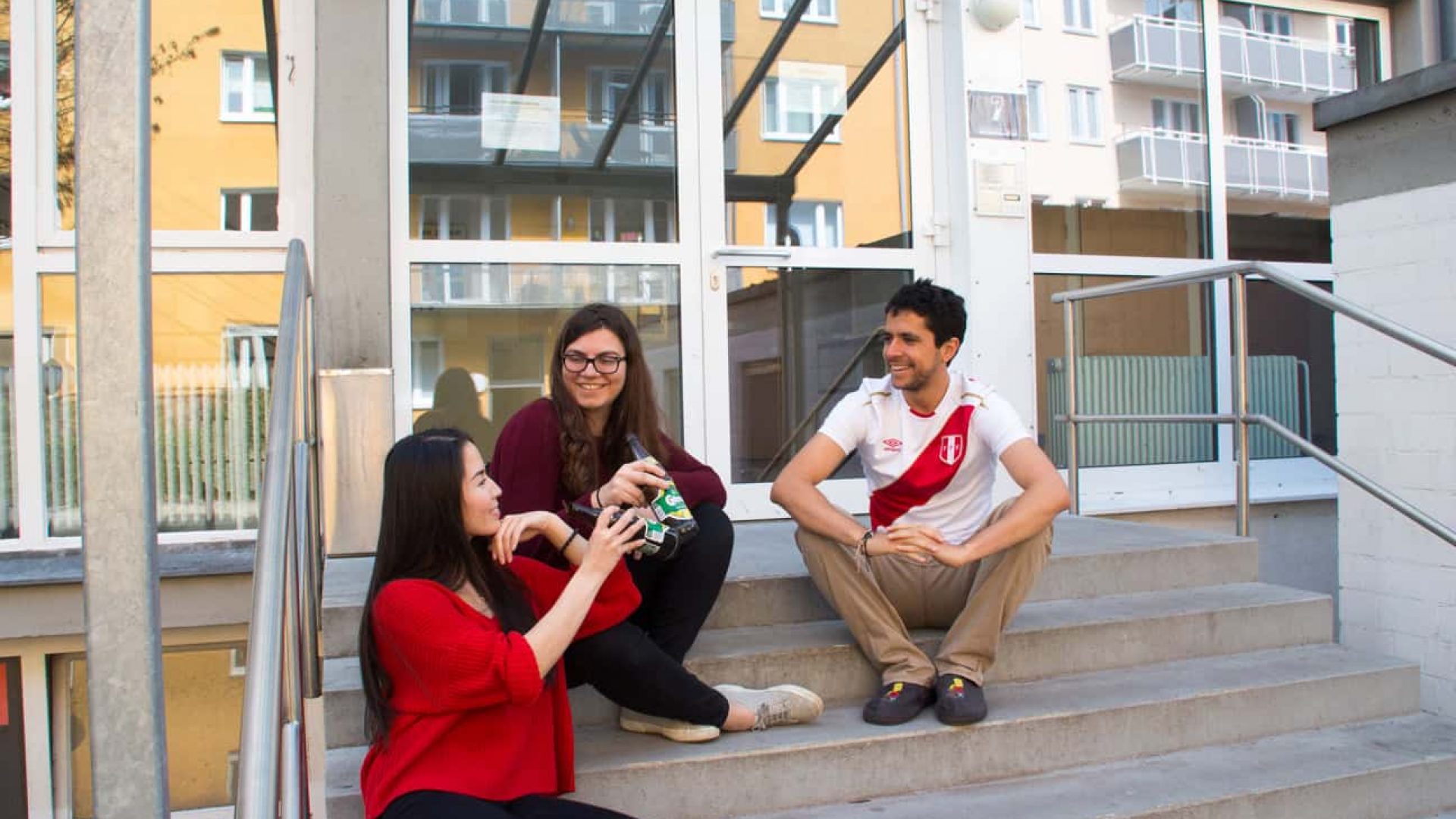
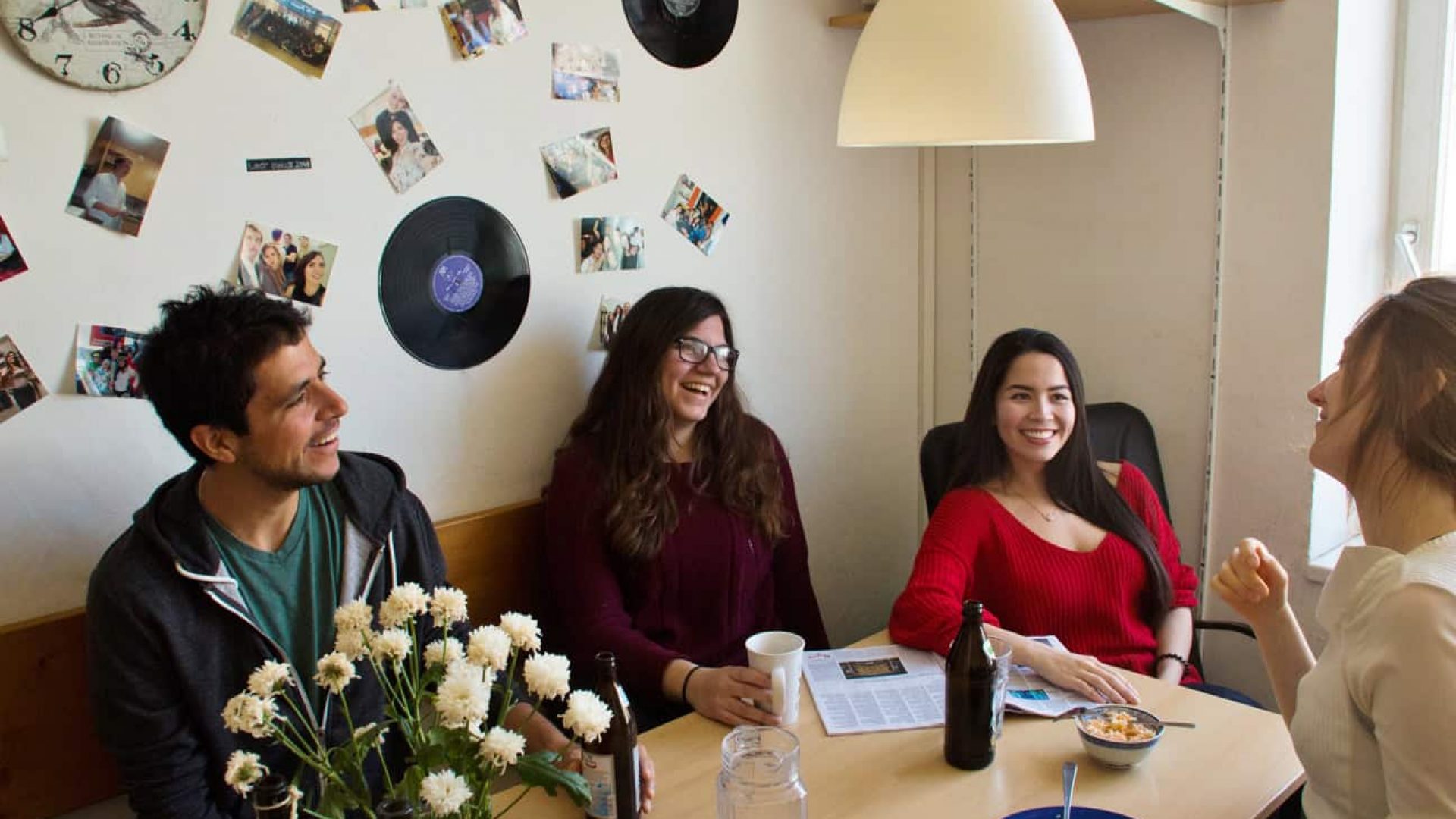


The quality of life in the dormitory is evidenced by the following quotes from reports of current and former residents of Schollheim:
MEHR LESEN »
MEHR LESEN »
MEHR LESEN »
MEHR LESEN »
MEHR LESEN »
MEHR LESEN »
Student self-administration
The most important feature of Schollheim is that, unlike commercial dormitories or those managed by the Studierendenwerk (public-law institution), it is not overseen by an external institution, but rather allows residents to participate in its organization through the student dormitory’s self-administration (abbreviated as HSV – Heimselbstverwaltung). The foundational aspects aimed at fostering a harmonious coexistence among residents are embedded in the residential contract and house rules. In between, many areas are organized, regulated, executed, and managed through student engagement within the framework of HSV. These include planning dormitory trips, organizing political, cultural, sports, or celebratory events, creating the dormitory’s own newspaper “SchollZeit”, and running the dormitory’s bar, just to name a few examples. Crucial for the fundamental organization of the dormitory is also the collaboration with the supporting association and the dormitory management, for which the HSV representation and the dorm speaker (Heimrat) primarily hold responsibility.
Further information on this topic can be found here:
Our conviction
The dormitory bears the name of the Scholl siblings in remembrance of two courageous young individuals who sacrificed their lives for freedom and democracy. Since its establishment, the dormitory considers it a goal to motivate current generations of students to engage in the values of democracy. Among these values are an interest in political matters, willingness to advocate for others, taking responsibility, and, ultimately, the belief that self-governed initiatives are well-suited to serve the interests of all affected parties. Accordingly, the dormitory’s sponsor expects all residents to engage, exchange ideas, debate, and strengthen and develop their social skills. Hence, participation in the residential community, involvement in the HSV (student dormitory’s self-administration), and undertaking communal responsibilities are not just encouraged but also envisaged.









